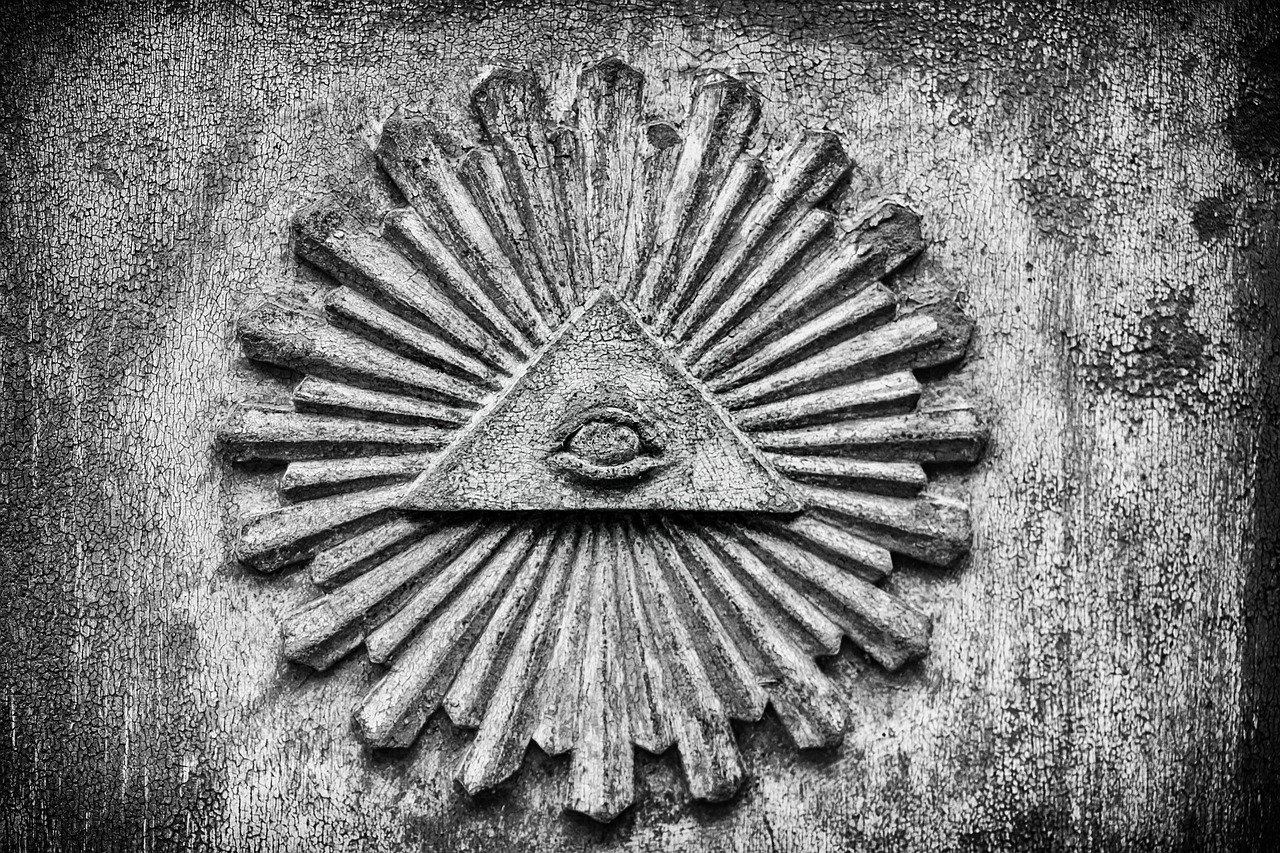The Illuminati were a secret order that existed between 1776 and 1785 when secret societies were formally banned in Bavaria. The question is then, how did a short-lived organization achieve such notoriety that it’s still remembered and feared today? To answer this question, we will discuss the first Illuminati conspiracy theory.
We advise you to first read our article on the history of the Bavarian Illuminati, because it contains important information about the original society, their ideas and goals.
Dissolvement or Survival
Although the Illuminati formally ceased to exist in 1785, many people back then believed that the group simply went underground. After all, it was a secret society and once the members who betrayed their secrecy were found out, the order could weed them out and become truly secretive, because the circumstances (the Bavarian ban) demanded it.
Adam Weishaupt died 45 years later, as an exile in Gotha, another German province, so perhaps he remained Illuminati’s Grand Master. He even published works on illuminism that detailed the purpose of the movement and the persecution in Bavaria.
Even before the Bavarian ban, Weishaupt noted the importance of concealment, going as far as to state that the order must be known by different names and occupations to ensure its survival.
With such statements, it’s no wonder why the Bavarian people, who eventually had access to some of the Illuminati literature, believed that the order lived on. Some even thought that they were merely a facet of a much larger group that remained under the radar.
We can see that conspiracies relating to the Illuminati have existed for as long as the order itself. They also spread like wildfire and the order soon became common knowledge in Europe and outside of it.
French Revolution
Neighboring France was soon involved in the first massive-scale Illuminati conspiracy. The French Revolution started on July 14, 1789, and sought to create a new society, free of hierarchy, based on liberty, equality, and fraternity. Sounds familiar?
The egalitarian ideas and the Machiavellian course of action that led to bloodbaths in the name of the eventual betterment of society sound strikingly similar to Weishaupt’s perfect world and the means to achieve it. Hence why some think of the revolution as the Illuminati’s first success.
This isn’t a contemporary theory either; the first work to suggest the influence, Memoirs Illustrating the History of Jacobinism, was published in 1798 by the French Jesuit priest Abbé Augustin Barruel. In his book, Barruel explicitly states that Enlightenment philosophers, Freemason societies and the Illuminati created the philosophy of the Jacobins who were the first to execute it.
He went as far as claiming that members of German secret lodges infiltrated French society. He argued that there were no legal consequences for the Illuminati when they were banned, showing their influence, and the fact that they could remain hidden due to their structure; if one lodge is revealed, the other takes notice and remain hidden.
Barruel’s work was immediately picked up by French loyalists, the Catholic Church and neighboring countries fearing similar revolts. His book was quickly translated to other languages and was read by many in France and abroad. Some denounced it immediately as propaganda (they instead argued the revolution was the result of numerous crises), while others believed Barruel’s historical account.
Scottish scientist, John Robinson, made similar arguments in his book Proofs of a Conspiracy against All the Religions and Governments of Europe, carried on in the Secret Meetings of the Free Masons, Illuminati, and Reading Societies. The book was first published in 1798, the same year as Barruel’s work and Barruel wrote to Robinson, noting that unbeknownst to each other, they were fighting the same enemy.
Britain proved to be the perfect breeding ground for Barruel’s, Robinson’s and Edmund Burke’s theory of a massive conspiracy orchestrated by the Illuminati against societal order. Writers Percy Shelley and Mary Shelley supported this idea with Mary going as far as to base her work Frankenstein in Ingolstadt, the home of the Bavarian Illuminati.
Barruel and Robinson in America
Thomas Jefferson called Barruel’s book “the ravings of a Bedlamite”; Jefferson thought of Weishaupt as a man supporting the ideas of equality and the principle of self-governing. Jefferson didn’t hide his true feelings and they were soon weaponized against him.
The Federalists, who supported Jefferson’s opponent (John Adams) in the 1800 presidential election, explicitly and publicly decried the Illuminati and their influence on politics in Europe and at home. The Federalists included deeply religious Puritans and Calvinists who saw Barruel’s and Robinson’s works as evidence that the Illuminati were actively trying to subvert nation-states and Christianity.
Jefferson’s controversial remarks on Christianity such as his disbelief of Christ’s resurrection and miracles, along with his compliments of Weishaupt, only fuelled the association with Illuminati. Timothy Dwight, a Federalist and president of Yale University, supported this theory, while his brother Theodore Dwight even named Jefferson as a potential Illuminati member or supporter.
On the other side of the debate, Jefferson’s supporters decried the Federalists as puppets of Britain and their theories as conspiracies by the empire to regain its former colonies. After all, Britain was the most prominent supporter and spreader of Barruel’s and Robinson’s books.
John C. Ogden, a preacher, even turned the Illuminati conspiracy against the Federalists, claiming that they were the Illuminati puppets who were trying to conceal their nature by subverting people into thinking Jefferson was the culprit. Timothy Dwight was the perfect target, because his position in Yale allowed him to indoctrinate the impressionable youth.
Ogden weaponized the Illuminati against the Federalists and attributed to them qualities they never had; for example, the Illuminati advocated for religious liberty and civic freedom, while the Federalists didn’t, but the mere mention of secret society and its insidious workings were enough to look past that big inconsistency.
In the end, Jefferson won. It’s unclear whether the Illuminati conspiracies helped him or not, but they, along with other conspiracies, dominated the 1800 elections.



